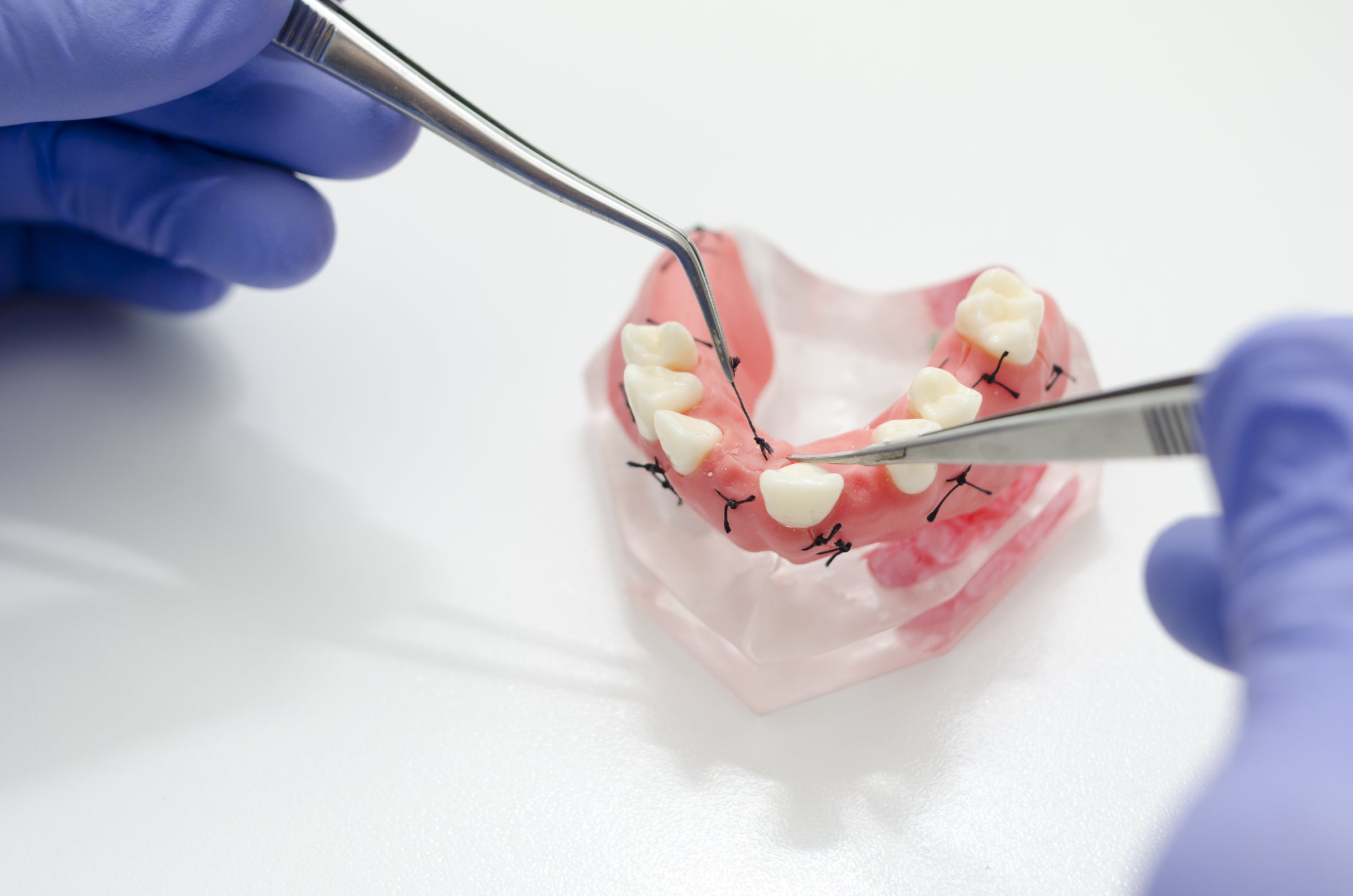

· By Trevor Horne
Dental Sutures: Procedure, Care And Benefits
When it comes to dental procedures, there are only a few procedures that require dental sutures. Generally speaking, if there are no complications or exposed bone/tissue materials, your dentist will probably allow the wound to heal without the use of any sutures. However, there are a number of dental procedures that require dental sutures. In this article, we examine when sutures come in handy and how they can help in faster healing.
Procedures that Need Sutures
There is a relationship between the need for sutures and the extend of the wound that needs to heal. For example, procedures such as dental implants require multiple operations in order to complete. Bone grafting must be done if there is jaw bone loss (generally, there tends to be), then the implant must be inserted before a crown is placed. All these procedures mean that there is a higher risk of tissue exposure if the wound is not effectively closed. This is why sutures are often used during implants. Another common area where sutures come in handy is wisdom tooth extraction, especially if the tooth has been impacted.
Types of Sutures
There are two main types of sutures namely absorbable and non-absorbable. As the name suggests, absorbable sutures eventually dissolve in the gum tissue and thus do not need to be removed by the dentist after the wound heals. That being said, it is common for dentists to still examine the area to see if there are any suture materials left as these may lead to infection. These sutures will vary in the time they take to dissolve, ranging from a few days to a few weeks. When it comes to non-absorbable sutures, these must be removed by the dentist after the wound heals. They are usually made of materials such as silk. The choice of which to use is usually up to the dentist and depends on a variety of factors such as the size and location of the wound.
Benefits of Sutures
As mentioned earlier, sutures hasten the healing process of a dental wound. They help to close it up thus allowing the gum tissue to begin to close the wound naturally. Another important role they play is to prevent infection. The mouth is exposed to many possible contaminants and an open wound can easily introduce bacterial infection deep into gum and bone tissue. This can then lead to serious complications, some of which can even be fatal. Sutures prevent this by sealing the wound shut.
Care of Sutures
If you have had a dental surgical procedure and you have sutures, there are a number of things to be on the lookout for. The first is to watch out for any pain in the area, especially continuous pain. While some discomfort is normal immediately after a procedure, it should not go on for days on end. Another possible danger sign is pus oozing from the area. While you may not notice the pus inside your mouth, you are likely to feel pain and notice a foul taste in your mouth. That is a likely sign of infection and you should see your dentist immediately.
- Choosing a selection results in a full page refresh.
- Press the space key then arrow keys to make a selection.
Your cart -
Your cart is currently empty.
